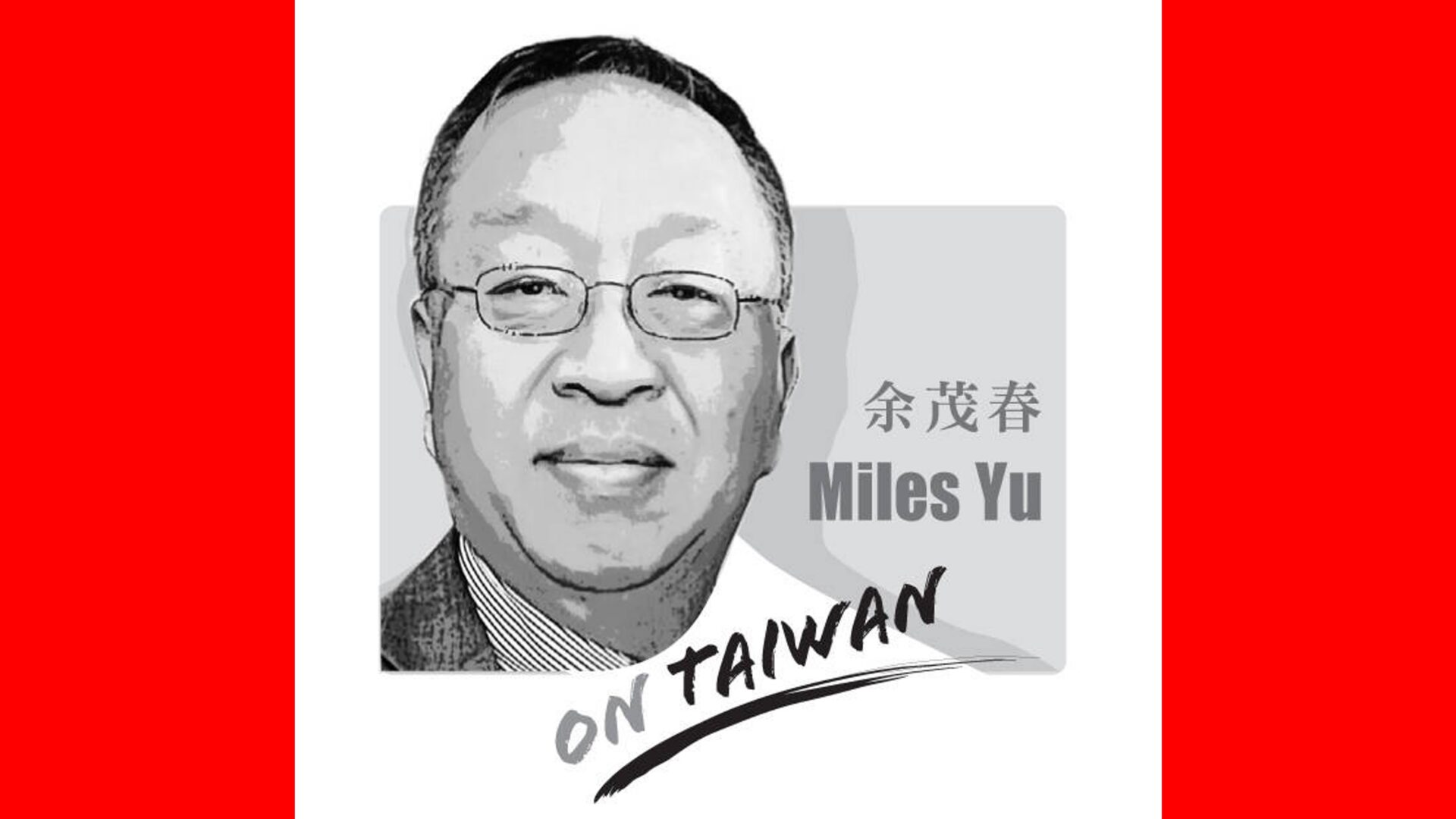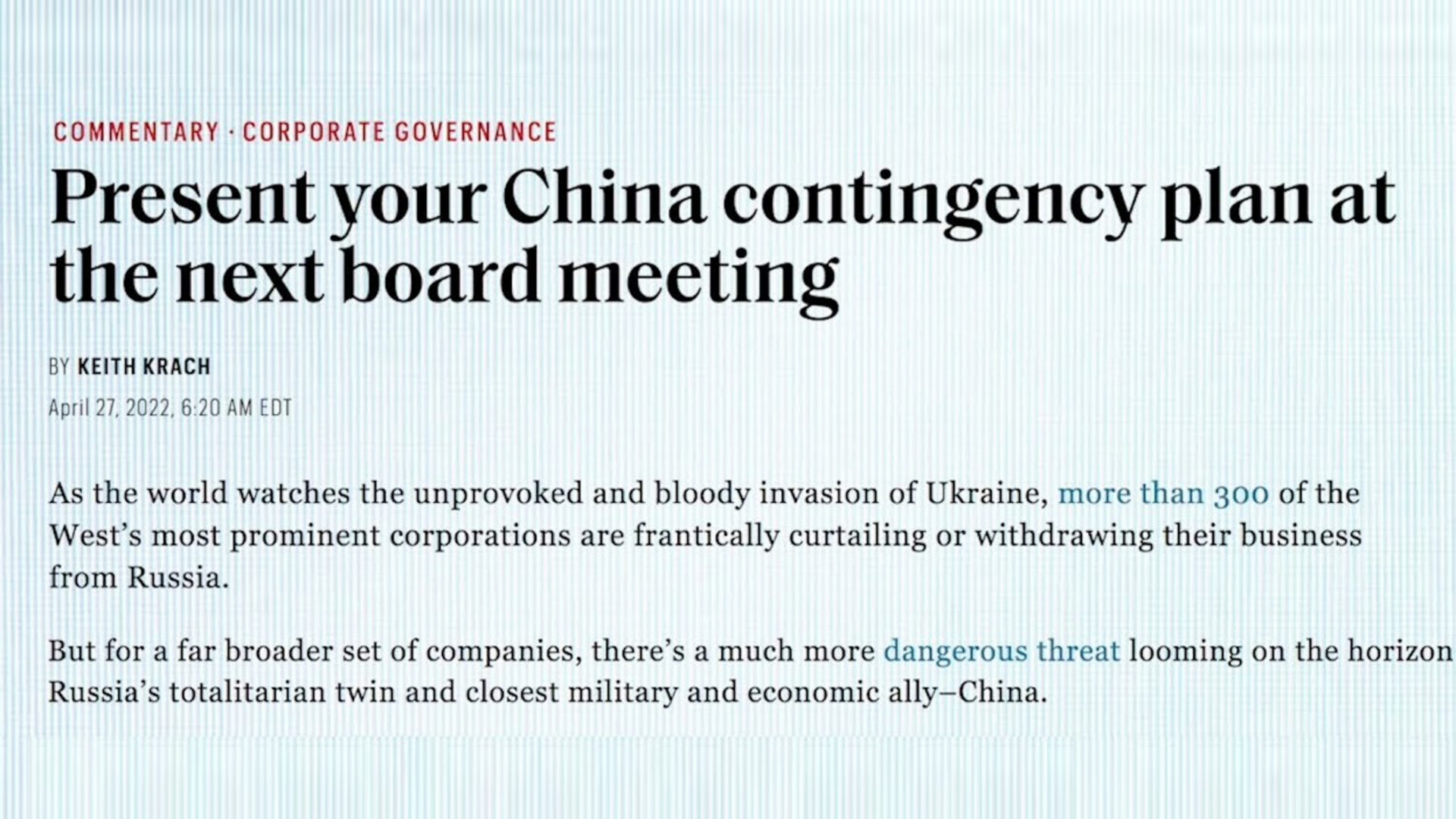Krach to CEOs: Present your China Contingency Plan
Krach Institute for Tech Diplomacy at Purdue
02.28.23As the world watches the unprovoked and bloody invasion of Ukraine, more than 300 of the West’s most prominent corporations are frantically curtailing or withdrawing their business from Russia.
But for a far broader set of companies, there’s a much more dangerous threat looming on the horizon: Russia’s totalitarian twin and closest military and economic ally–China.
It does not take a Ph.D. in international affairs to understand the common threads that underpin the China-Russia partnership. Both governments are known for lawless behavior, duplicity, bullying, domestic oppression, coercive economic practices, and grave human rights abuses.
It’s no surprise the tech giants that form the backbone of China’s surveillance state–such as Huawei, Alibaba, Tencent, and Xiaomi–are still happily doing business in Russia.
Related Posts

article
The Era Of ‘Tech Diplomacy’ Is Here
Technology is the new frontier of international relations. The interaction is bi-directional: technology is defining diplomatic matters while diplomacy is also influencing the development and deployment of technology. Take semiconductors as an example. This is a technology that forms the foundation of digital economy, national security, and productivity in almost all industries. Global supply chain in the semiconductor industry is shaping U.S. foreign policy. Conversely, America’s diplomatic effort has been redefining the supply chain. Tech diplomacy is different from science diplomacy, which became a key pillar for the U.S. and other countries since World War II. Scientists participated in treaty negotiations, engaged in bilateral summits and served as attachés at embassies. Primary topics included nuclear proliferation, super-collider construction, human space exploration and environmental science.

By: Miles Yu
article
Miles Yu On Taiwan: China’s lessons—and fears—from the Wagner revolt in Russia
For over a century, tumultuous events thousands of miles away in Russia have impacted China profoundly. Mao Zedong (毛澤東) famously said that the cannon sound of the October Revolution brought Marxism-Leninism to China. Now Xi Jinping (習近平) fears that last month’s Wagner revolt may provide a model for the Chinese Communist Party’s undoing.
